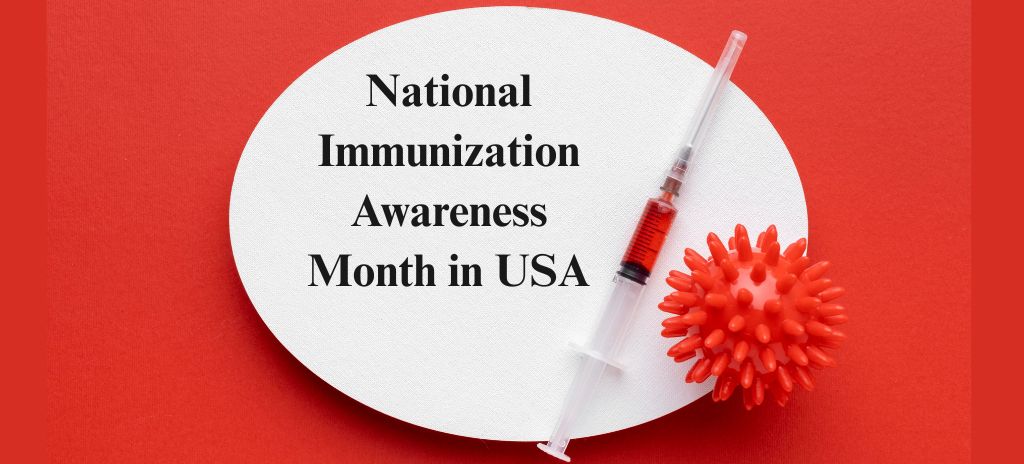Every August, the United States recognizes National Immunization Awareness Month (NIAM) to highlight the critical importance of vaccination for people of all ages. This month-long observance is spearheaded by public health organizations, healthcare providers, schools, and advocates working together to remind everyone that staying current with vaccinations is essential not just for personal well-being but also for protecting communities across the country.
The Purpose of National Immunization Awareness Month
NIAM is designed to:
-
Educate the public on the vital role vaccines play in preventing serious diseases.
-
Encourage individuals and families to review their immunization status.
-
Promote vaccine accessibility across all ages, from infants to older adults.
-
Counter vaccine misinformation and reduce hesitancy by sharing credible, science-backed information.
Vaccines are among the most successful and cost-effective public health tools ever developed. They protect against life-threatening conditions such as measles, whooping cough, polio, human papillomavirus (HPV)-related cancers, influenza, and more. Thanks to large-scale vaccination efforts, the United States has virtually eliminated smallpox and dramatically reduced the incidence of many once-common diseases.
Why Vaccination Matters
Immunization protects not just individuals but entire communities. This concept, known as herd immunity, relies on a high percentage of people being immunized to prevent disease outbreaks. Depending on the disease, between 85% and 95% coverage is typically needed to keep communities safe.
Key facts about vaccines:
-
Vaccines prevent more than 20 life-threatening diseases worldwide and save up to 5 million lives each year.
-
Conditions like polio, diphtheria, and rubella have been dramatically reduced in the U.S. through vaccination.
-
As new vaccines against threats like COVID-19 and RSV emerge, NIAM emphasizes the importance of staying up to date with current recommendations.
The History and Evolution of NIAM
-
NIAM has been observed in the U.S. for decades, initially organized by the Centers for Disease Control and Prevention (CDC), with later support from partnerships like the National Public Health Information Coalition.
-
While the basics remain unchanged—raising awareness and promoting access—the urgency and visibility of NIAM increased considerably during the COVID-19 pandemic, underscoring the truth that vaccines protect not just individuals but entire societies.
Focus Areas and Weekly Themes
Each year, NIAM highlights specific themes to target various aspects of immunization. Typical weekly focus areas include:
-
Infant and Childhood Immunizations: Ensuring all children receive essential routine vaccines on schedule.
-
Adolescent Vaccinations: Addressing vaccines for teens, such as those preventing HPV or meningococcal disease.
-
Adult and Older Adult Immunizations: Raising awareness about vaccines for adults, such as influenza, shingles, pneumonia, and tetanus boosters.
-
Vaccines for Pregnant People: Discussing special recommendations to protect both mothers and newborns.
The Importance of Timely Immunization
August is strategically significant, as families prepare for the back-to-school season and prepare to face the fall and winter “flu” season. It’s the optimal time to check that children’s vaccinations are up to date, as schools often require proof of immunization. Likewise, adults—especially those with chronic conditions or who are over 65—should use this time as a reminder to review their own vaccination needs.
Overcoming Barriers and Combatting Misinformation
Despite the overwhelming benefits, some people are hesitant or delay vaccinations due to misinformation, fear, or logistical barriers. NIAM addresses these challenges by:
-
Providing accurate, accessible information from trusted sources like the CDC, local health departments, and healthcare providers.
-
Encouraging healthcare professionals to create welcoming spaces for vaccine-related questions and to proactively recommend vaccinations during every patient encounter.
-
Making immunization schedules easy to find and understand, and promoting tools such as the CDC’s adult vaccine assessment to tailor recommendations.
How Healthcare Professionals Support NIAM
Doctors, nurses, and other clinic staff play crucial roles, including
-
Staying current with immunization guidelines through ongoing training.
-
Ensuring that every patient encounter is an opportunity to discuss vaccination status.
-
Displaying up-to-date vaccine schedules in offices and online.
-
Using digital tools, such as mobile vaccine advisor apps, to make accurate, age-appropriate recommendations.
A Call to Action: Protect Yourself and Your Community
Everyone can participate in NIAM:
-
Call your doctor or local health department to check your (and your child’s) immunization status.
-
Schedule well-child visits and back-to-school physicals early to avoid last-minute scrambles.
-
If you’re an adult, especially with chronic conditions, ask if you’re due for vaccines like shingles, hepatitis, pneumonia, or flu.
-
Share credible information about vaccines in your community and on social media to help dispel myths.
The Future of Immunization in the U.S.
Vaccine science continues to evolve, with ongoing research producing new or improved vaccines every year. As medical innovation advances, routine immunization remains the best defense against both old and emerging infectious diseases. NIAM’s message is clear: Vaccines save lives, and our communities are healthiest when everyone does their part.
Useful Resources and Next Steps
-
The CDC’s Vaccine Guide, Immunization Schedules, and Adult Vaccine Assessment Tool are freely available online.
-
Most communities offer support for uninsured or low-income families to access required vaccines during August—contact your health department for details.
-
Stay informed and get involved: follow NIAM news, join online conversations, and help make sure everyone you know is protected.
As National Immunization Awareness Month unfolds throughout August, use this opportunity to take action, spread the word, and help ensure a healthier, safer future for all. Vaccination is a simple step with powerful lifelong benefits—for you, your family, and your community








